Natasha Stasiuk finds her calm through golf
“Playing golf is where I feel free and don’t feel judged. It’s my happy place. It’s where I feel most confident in life,” says Natasha as she explains what golf means to her.
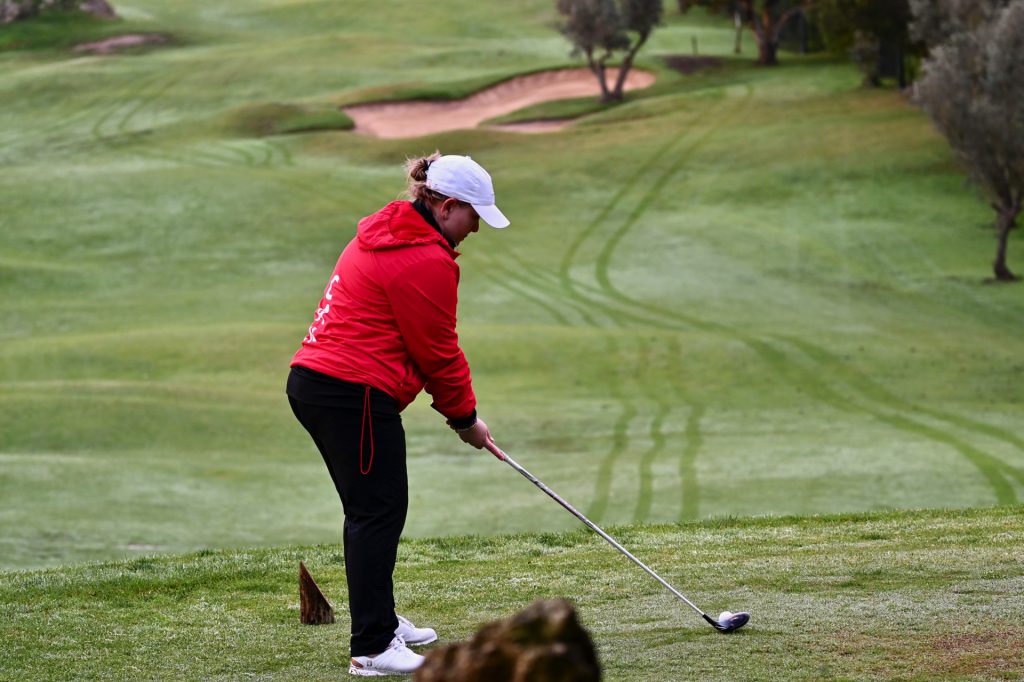
Natasha Stasiuk, from Oakville, Ontario, clearly loves the game. When considering her own improving performances, winning tournaments and helping to fly the flag for Canada, she will agree this is partly due to a lot of hard work and support, but success for her also means the joy she feels in playing on a golf course, looking for the perfect swing; all an antidote to the anxieties of life.
At 26, this golfer is becoming more used to the pressure of the first tee, more experienced in gathering her strength for the challenge ahead, while not forgetting the challenges of the past.
Living with Autism for Natasha includes also managing an auditory processing condition. This can be evident when completing a scorecard, or following the speech of a stranger. She and her father Peter say that often when people are in the third sentence in their conversation with her, Natasha is still thinking about the first sentence. Such an issue for an anxious person can leave them feeling like they have a mountain to climb, and that’s if their condition is treated with respect to begin with.
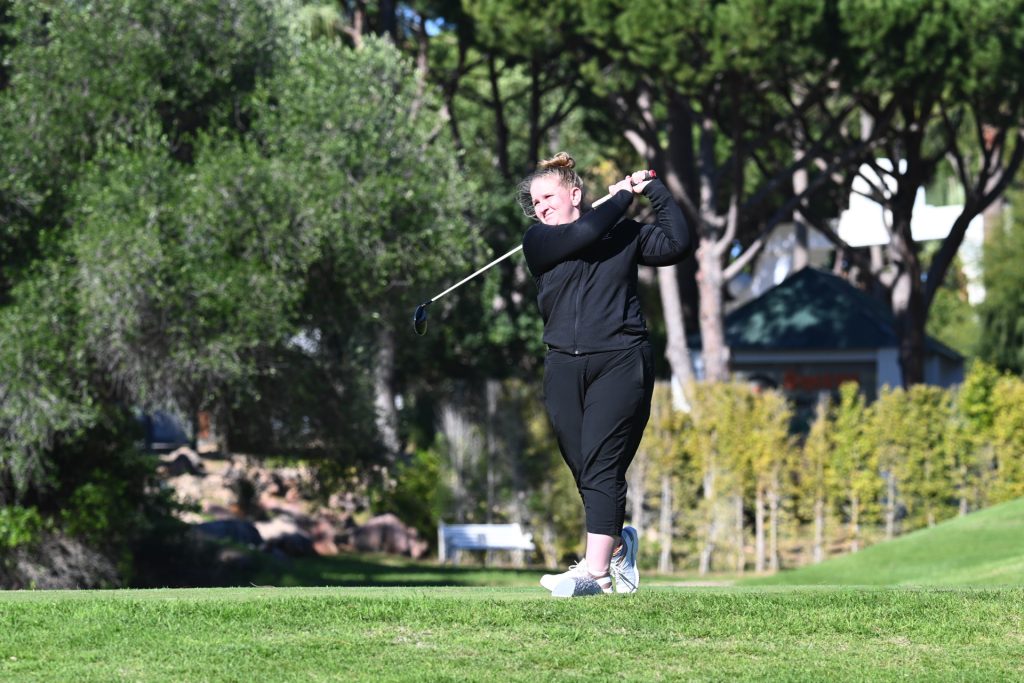
Sometimes during Natasha’s childhood, other golfers would take advantage, confusing her, adding a few strokes on to her score in order to win themselves.
“When I was younger I couldn’t count my score. I still have trouble to this day,” says Natasha, who can understandably become emotional when recalling those early days. Thankfully, her parents, and later by extension the game of golf itself, have been saviours for her in many ways.
Her Dad Peter came to the rescue with the scoring issue by following the play himself and ensuring that the record was always fair and accurate. From there, his daughter’s golf development gathered pace as confidence grew. The records are now certainly accurate, recording an improving player off around a 5 handicap, a competitor in all three of the USGA’s US Adaptive Opens so far, a five-time winner of provincial events in Ontario, a three-time Canadian champion, representing her country in the Special Olympics in Berlin; and around the time of writing preparing to debut in the leading event series in ‘G4D’ (golf for the disabled), playing for the Canadian team in the G4D Tour Nations Cup at the Betfred British Masters at The Belfry, England (August 26-27, 2024), staged by the DP World Tour and supported by EDGA.
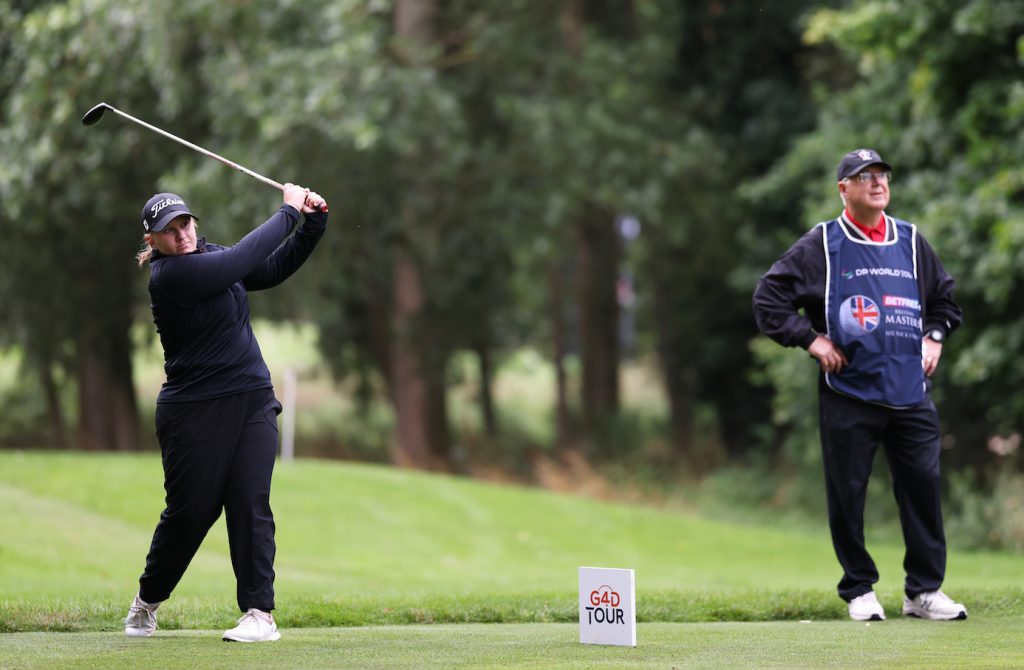
In this latter tournament, Natasha and fellow Canadian Kurtis Barkley finished in a creditable fourth place for their country; Natasha being commended by EDGA Player Manager Mark Taylor for her adapting well to a challenging format which saw the players competing in four-ball better-ball on the first day and the alternate shot ‘foursomes’ format on the second day. Natasha hadn’t played foursomes before, never mind doing so in such a big tournament.
Playing as a team was new to her but Natasha said she loved it, especially playing alongside England’s Kipp Popert (Gross World Ranked No: 1) and Kurtis (Ranked 7) to study their games closely and to learn from them.
Mark Taylor said: “Natasha adopted excellent coping strategies which helped her to accommodate the new environment and playing formats. She was able to deal with these challenges really well, and gel successfully with her playing partner Kurtis.”
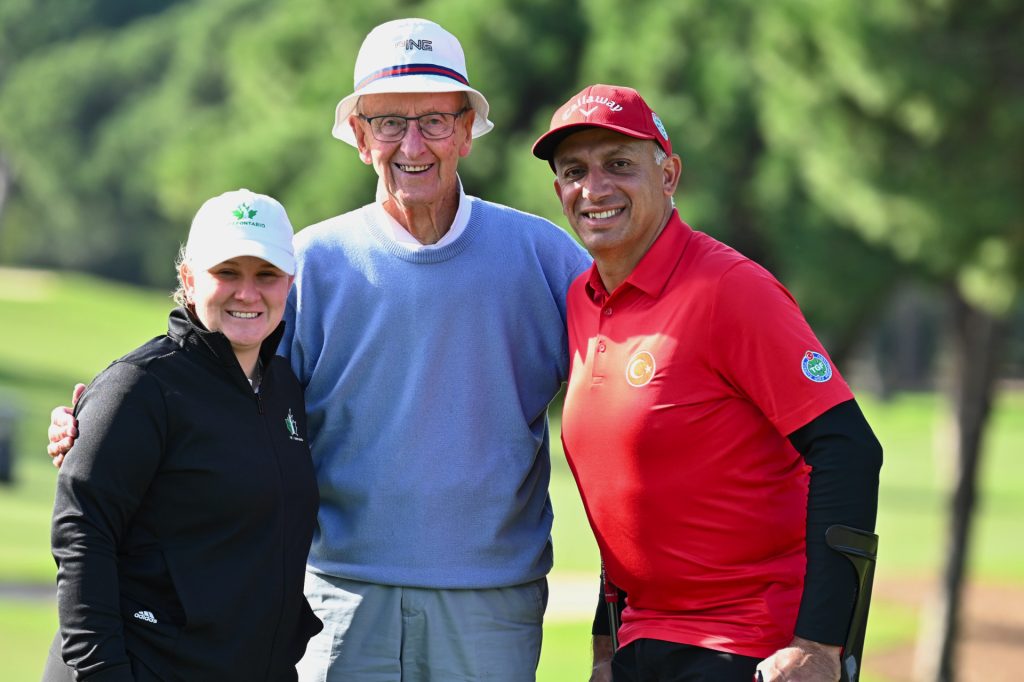
Like many folk in Canada, Natasha Stasiuk actually hails from the far east of old Europe, but her start in life was precarious. Born in Russia, she was left as an orphan in a crumbling hospital, her first year of life endured in sickness and neglect.
Ontario residents Peter and Sandra Stasiuk adopted Natasha when she was 13 months old and she was soon able to thrive in her new family in Oakville. Peter recalls noting that while early language was difficult for her, Natasha’s early movement skills and hand-eye coordination were very good.
From the outset Natasha loved sport as did her family, and she tried swimming, soccer, gymnastics, softball, ballet and ice hockey before golf. Everyone loved the hockey, family and friends all supporting National Hockey League team Toronto Maple Leafs. Many ice hockey players learn balance and timing with stick and ‘puck’, and so did Natasha.
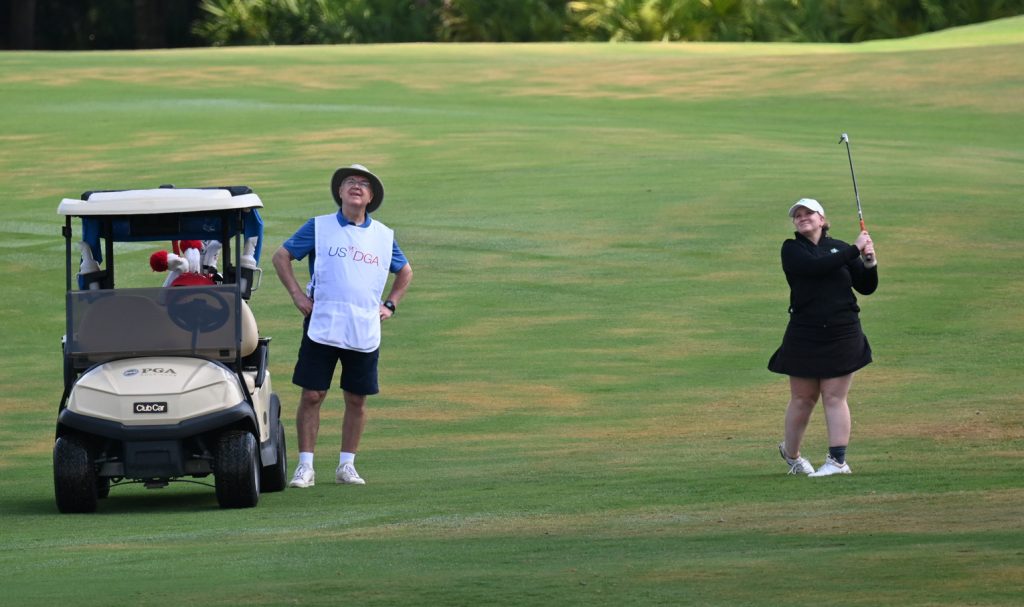
When she was eight years old, in the third grade at school, PGA of Canada professional coach Nick Starchuk noted her ability to hit a ball when he attended Natasha’s school gym class to introduce the kids to golf. Family folklore now has it that when Natasha was invited by Nick for a golf lesson at nearby Glen Abbey Golf Club, this supportive coach pointed to a hole on the putting green 30 feet away and encouraged the youngster to putt towards the flag as a starting point. Natasha did just that and knocked the long putt straight into the cup, a shot that if not heard around the world certainly raised eyebrows in parts of Oakville.
An aptitude for striking the ball was nevertheless a long way from having the temperament to develop a golf game. Learning is often a big challenge for a youngster with Autism. Thankfully Natasha would find a key mentor in PGA coach Carrie Vaughan, but as she grew into adulthood, having a non-visible disability which isn’t easily understood presents a significant set of hurdles. Added to the disability, people’s perceptions of the issues can only add to the pressure.
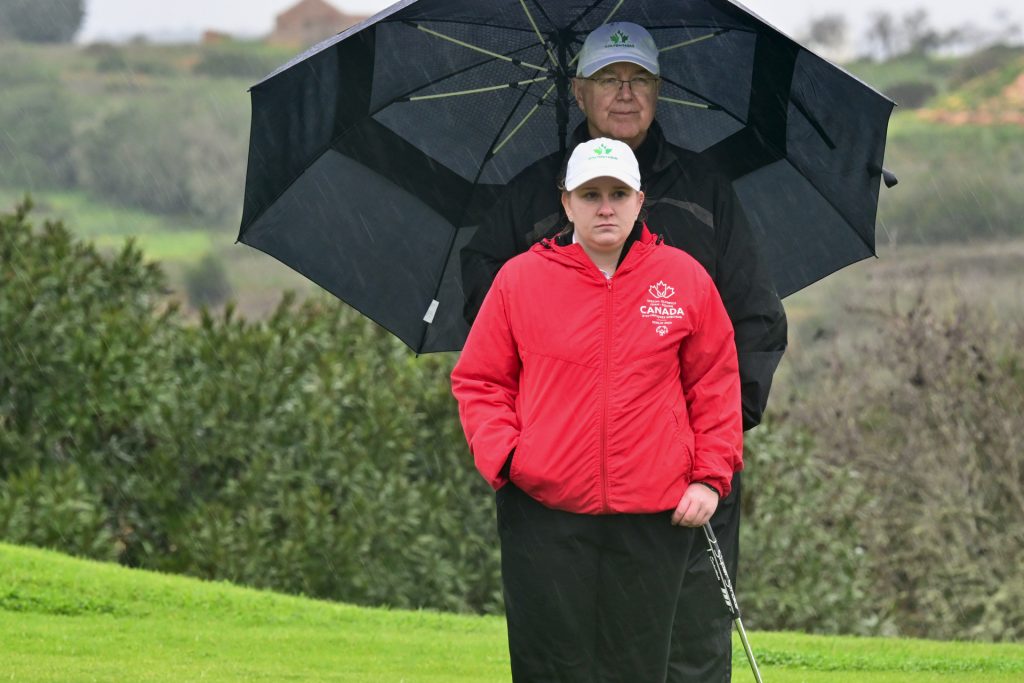
“People look at me and say you don’t have a disability, but it’s all in the brain with my disability, it’s like a big puzzle,” explains Natasha.
“I don’t know much about Autism but I know bits and pieces of it. I can’t look people in the eye… and I just learn differently from most people out there.”
Fortunately Carrie Vaughan took Natasha under her wing as part of her girls’ junior golf programme at Glen Abbey GC.
Natasha’s Mom Sandra remembers: “It was quite a large group but Carrie was instrumental in helping and working with Natasha and her challenges. Carrie was very encouraging, very patient, inclusive, very empathetic, and worked with Natasha on every aspect of her game including learning The Rules and especially her swing (which people comment on a lot).
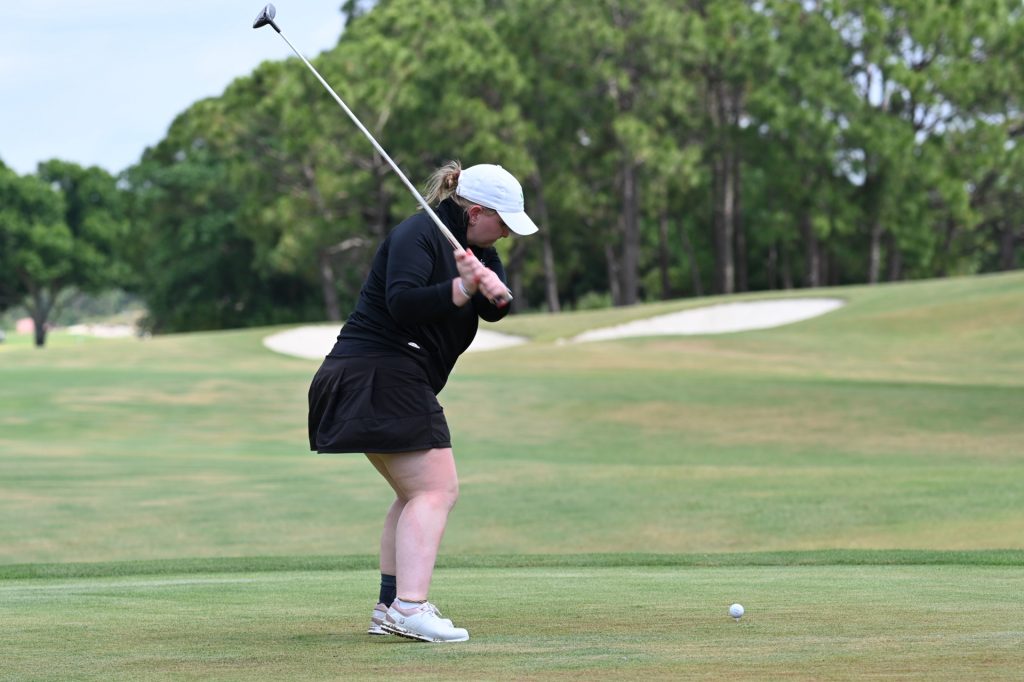
“Carrie gave Natasha the confidence to keep trying, eventually play in a tournament and then keep competing even though she struggled. She did such a wonderful job, and for her, all the juniors were like her family. As a female player herself, Carrie could not have been a better mentor for Natasha as she found her way in the game.”
Vaughan would later move to another club and today Natasha works with Ralph Bauer, the PGA Pro out of Hamilton G&CC, and together they are fine-tuning the swing that Carrie helped to shape.
When feeling positive, Natasha talks of Autism as like a “Superpower”, but at the same time she doesn’t want to be pigeon-holed concerning certain traits associated with intellectual disabilities.
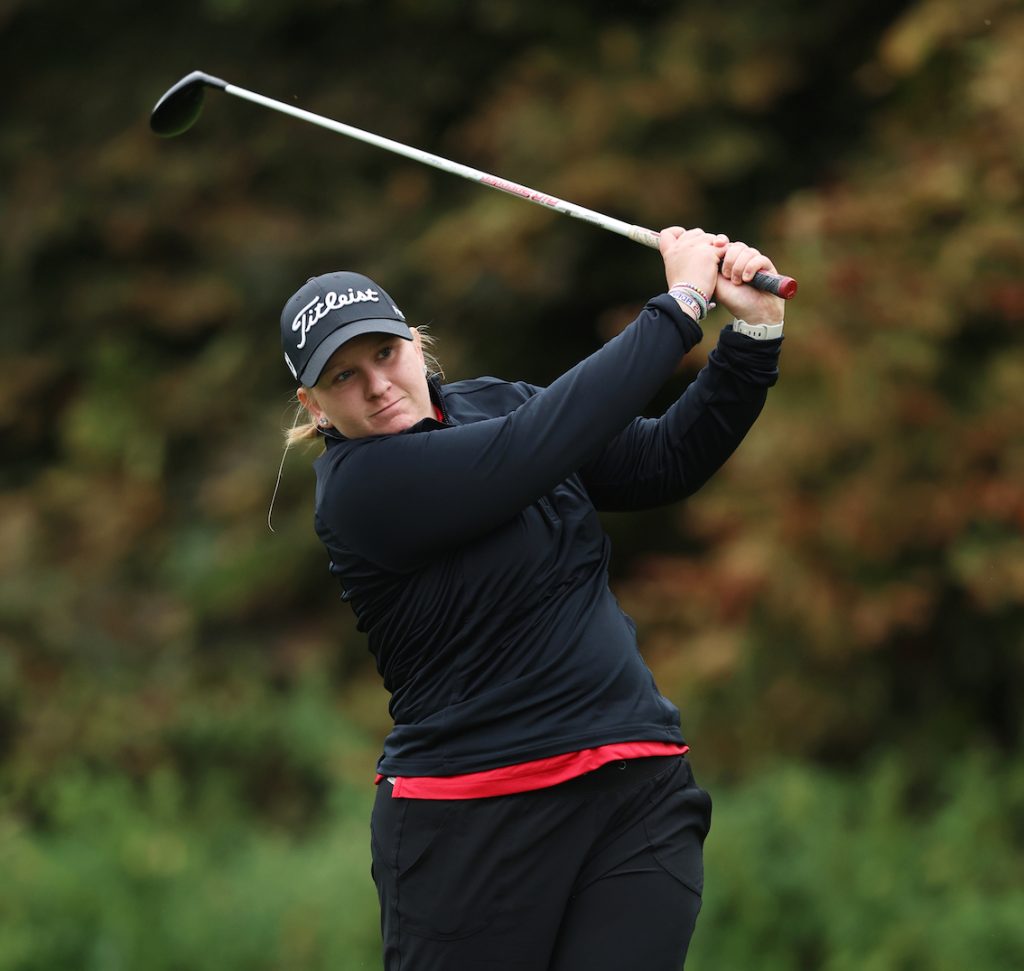
One golfing example is that you might expect someone with Autism to excel in practise, absorbed in the repetition of the task in the safe personal space. But Natasha actually loves to have fun on the course with a trusted friend, playing to express herself.
She says: “I have to have different scenery every couple of hours. With golf you’re moving constantly but when you’re at the range and just hitting golf balls for 30 minutes, you lose me after 20 minutes… Playing is just something that works for me.”
The changing nature around her is Natasha’s haven, and you can guess the value of this for someone whose condition has led her to feelings of depression and an ongoing battle with anxiety. And it helps, Natasha says, to work hard and “be the best golfer I can be. I know I can be the best golfer in Canada. It would be great to see that on the Internet but you know everyone has a tough game [to try to match].
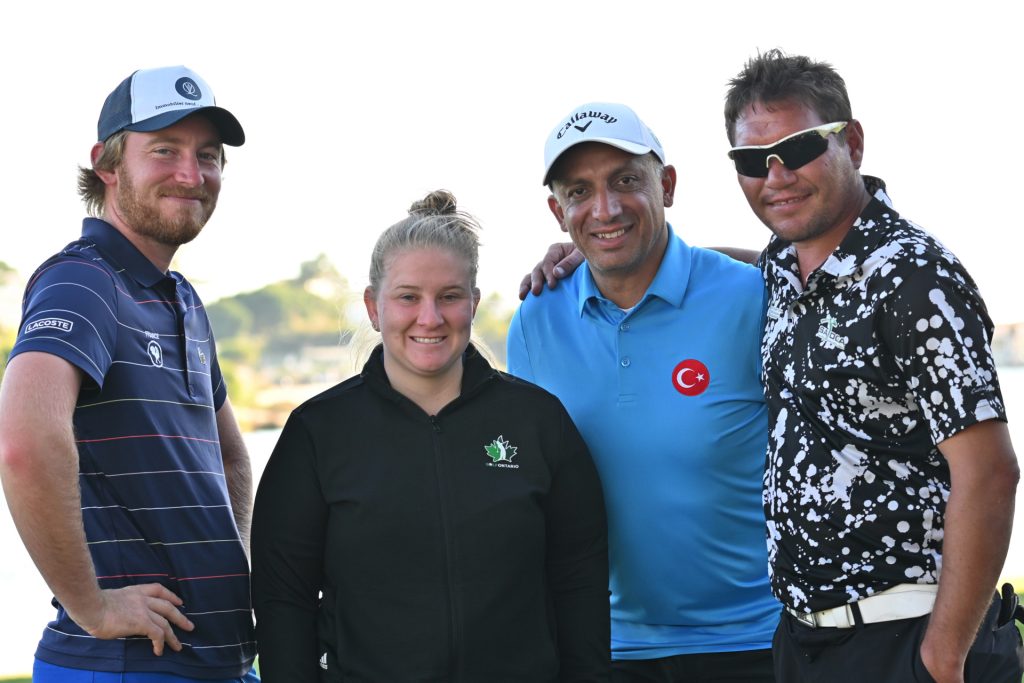
“I’m a role model for a lot of people back home. A lot of people have supported me through a lot of things. Golf has taken me to a whole new level. I’ve won tournaments, which is great for my self-confidence.”
The golf dreams for Natasha are to play on the G4D Tour; be the top female G4D player in the world; be the overall female winner of the US Adaptive Open, and to play golf for Canada one day in the Paralympics (golf is not yet a featured sport).
Talking about qualifying for the G4D, Tour Natasha said at the start of 2024: “The chance to play with World Ranked players from many countries and make new friends would be awesome.
“I’m inspired by other disability players and I’d like to help inspire others. I want more women to play with, so I’m motivated to help build the game. I’d like more female players to have a mentor like I have had, and more opportunities too.”
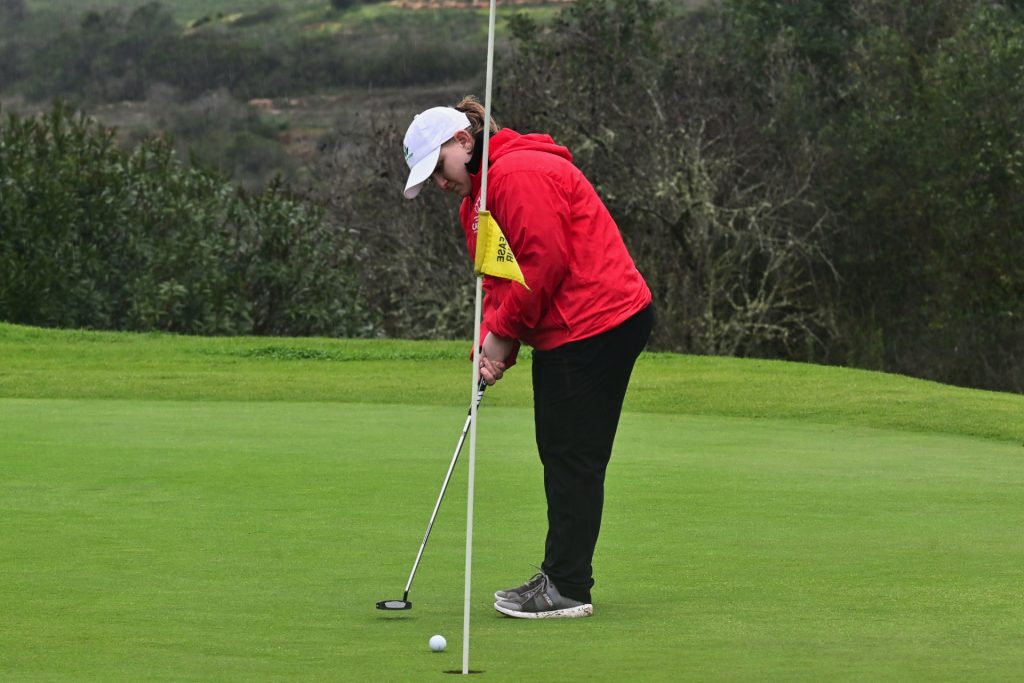
A few months after making these comments, at the end of July Natasha was preparing to make her G4D Tour debut at The Belfry in late August. She wanted to thank more of those people who have supported her in building her confidence. In no particular order: Carrie Vaughan, Nick Starchuk, Ralph Bauer, Mike Lamontagne, Ann Carroll, Jennifer Kirby, Tina Barrett, Clayton Sikorski, Tim O’Connor, Phil Jenner, Erin Shapcott, Michael Porreca, Kim Shapcott, and all her friends and family.
Natasha says they have all helped her as a person, which in turn has helped her on her golfing journey, because for Natasha, golf and life have become inextricably linked. Golf has helped her to grow and become more resilient, while she is keen to give back to the game by inspiring other young people with Autism and other conditions to thrive through golf.
It has all made Natasha stronger. “Golf is very important to me,” she says now. “It’s made me who I am today.”

NB: When using any EDGA media, please comply with our copyright conditions


